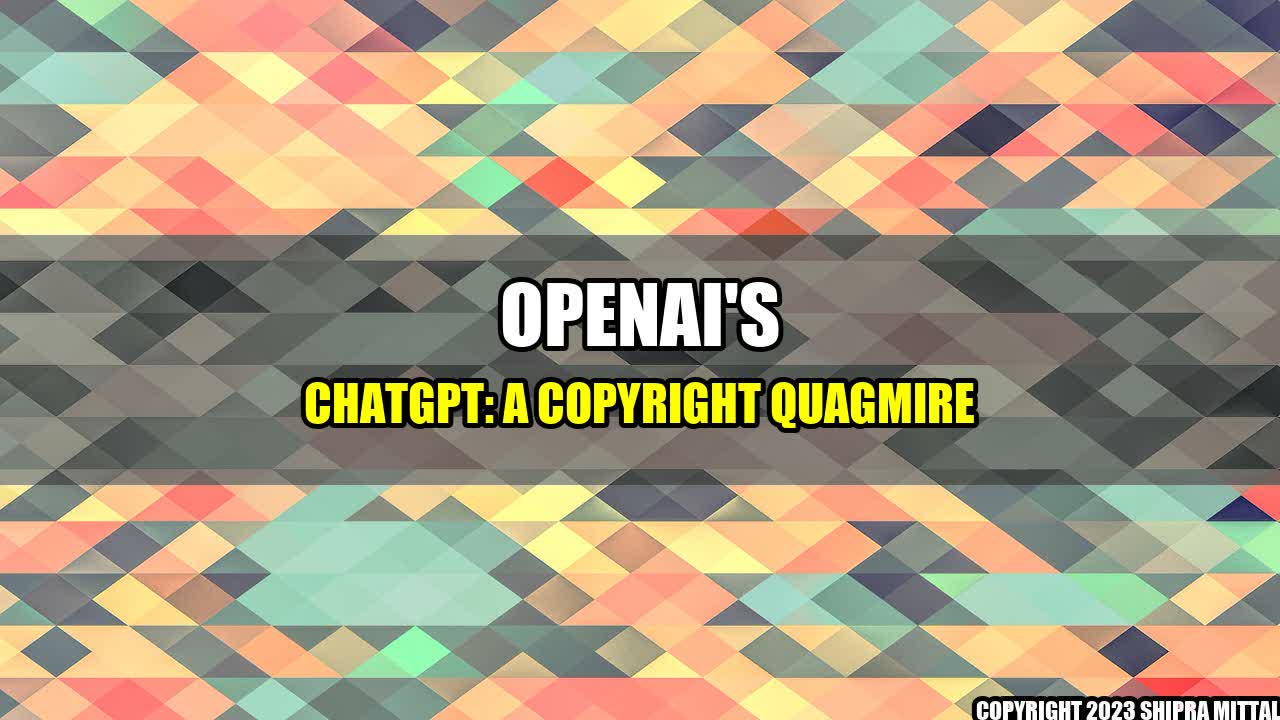Imagine a world where you can have a conversation with your favorite book character. Sounds like a dream come true, right? But what if I told you that this dream can actually come true, thanks to OpenAI's ChatGPT, an artificial intelligence (AI) language model capable of generating human-like responses.
However, this dream can soon turn into a nightmare for the publishing industry. This is because ChatGPT has memorized several books, which means that it can generate responses based on the content of the books.
For instance, let's say you ask ChatGPT, "What do you think about love?" ChatGPT may respond by quoting a line from a book, without acknowledging the original author. This raises serious copyright concerns, as the original author's work may be used without permission or credit.
Real-Life Examples
The copyright issue is not new to the publishing industry. In 2018, a startup called Muxer was shut down by the Association of American Publishers (AAP) after it created an AI model that could translate books into different languages without permission from publishers.
Similarly, in 2019, an AI system created by OpenAI itself was criticized for its ability to generate coherent paragraphs that were similar to articles written by humans. This raised concerns about the potential misuse of such technology.
The Main Companies Involved
Conclusion
- The publishing industry needs to come up with a framework to protect their content from AI models like ChatGPT.
- AI models like ChatGPT should acknowledge the original authors and seek permission to use their content.
- This issue highlights the need for strong laws and regulations surrounding the use of AI technology.

Akash Mittal Tech Article
Share on Twitter Share on LinkedIn